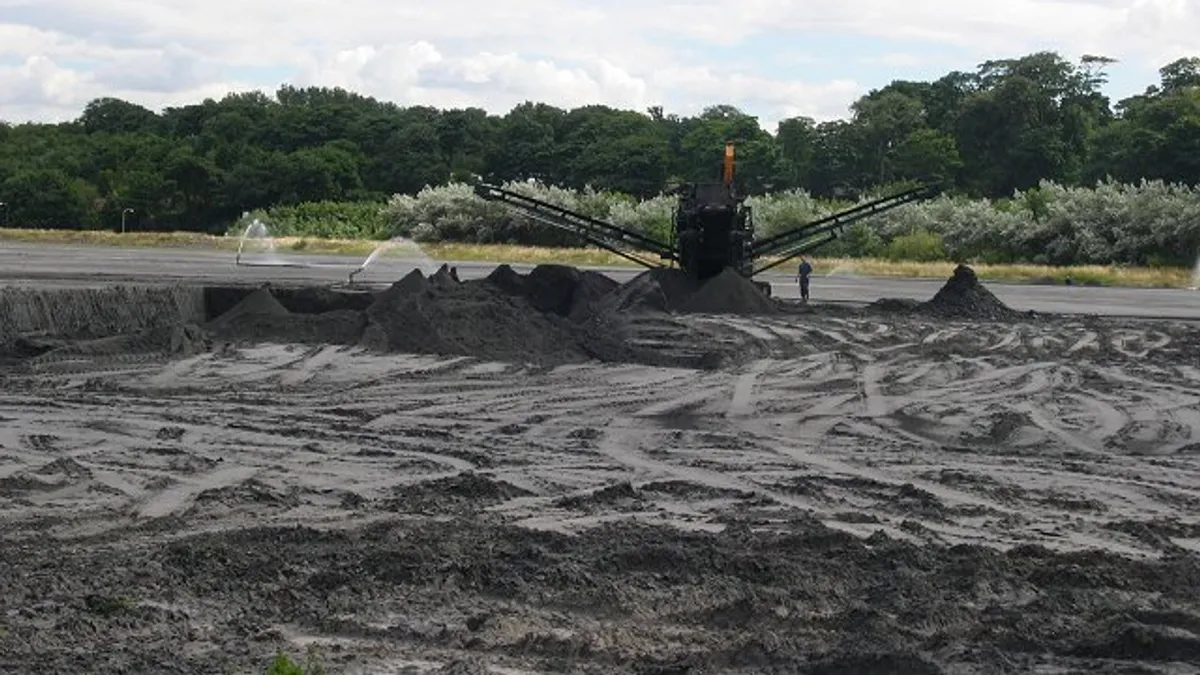Dive Brief:
- The EPA on Tuesday issued a final rule weakening consumer protections related to coal ash management. Opponents accuse the agency of kowtowing to industry petitions filed last year.
- The move is Andrew Wheeler's first major action as acting administrator of the EPA. The changes will allow some coal ash ponds to remain open until October 2020, well past the previous April 2019 deadline.
- Opponents fear that federal rollback will allow state regulators to terminate groundwater monitoring under some circumstances which potentially makes drinking water more vulnerable to some pollutants.
Dive Insight:
In the first of a two-part rulemaking, the EPA has issued a final rule covering coal ash waste management that gives industry and states more flexibility, with the potential to generate up to $31 million in annual savings.
Wheeler said in a statement the changes "provide states and utilities much-needed flexibility in the management of coal ash, while ensuring human health and the environment are protected."
The Trump administration has been systematically rolling back environmental protections, agreements and rules developed by former President Barack Obama. Wheeler said the changes "mark a significant departure from the one-size-fits-all policies of the past and save tens of millions of dollars in regulatory costs."
Earlier this year, the EPA allowed Oklahoma to operate its own coal ash permit program, shifting authority away from the federal government, which environmental groups have opposed.
Earthjustice attorney Lisa Evans issued a statement following the final rule's release, decrying the EPA's "radical drive to remove critical health protections at the behest of industry."
Evans also said the move shows Wheeler — a former coal lobbyist who took over the EPA following the departure of embattled former Administrator Scott Pruitt — is now in charge and living up to his roots in the industry.
"This is the first major rule signed during Andrew Wheeler's time running the EPA, and his true colors are shining through," Evans said. "Wheeler is ignoring the serious health threats to hundreds of communities at risk from contaminated drinking water."
A recent review of new monitoring data from Ohio Valley coal ash ponds shows groundwater contamination is widespread, according to an analysis by the regional news organizations Ohio Valley ReSource and WFPL. And in March, filings with the EPA showed groundwater contamination at dozens of plants owned by utilities such as AEP, Duke Energy, Xcel Energy, the Tennessee Valley Authority and others.
Pruitt's departure followed a series of ethics scandals, though for months he appeared isolated from the stories through his dogged pursuit of Trump's deregulation agenda. With Pruitt gone, however, some think Wheeler could be even more effective, if he can avoid the pitfalls of his predecessor.













